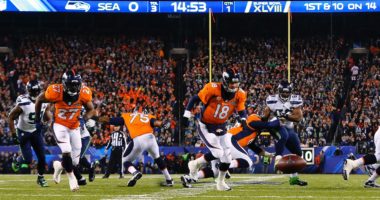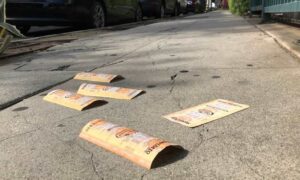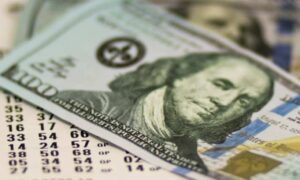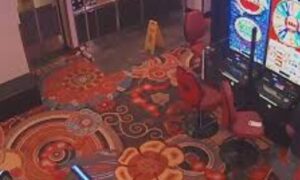
The Super Bowl is beloved by many due to its unique betting opportunities, which are not commonly found in other NFL games. While casual bettors may find these unconventional markets enjoyable, professionals see them as potential sources of income.
Sunday’s Super Bowl LVI will provide ample betting opportunities for West Virginia sportsbooks, featuring an extensive list of props to choose from. As usual, some peculiar options like the coin toss and Gatorade color will be available for wagering.
As the game draws near, most people who place bets will seize the opportunity to make a couple of enjoyable wagers, enhancing the thrill of the event.
There are individuals who may experience increased stress when there is a significant amount of money at stake. Many professional gamblers specifically target these propositions, often wagering a considerable sum to guarantee a smaller but seemingly certain return.
Naturally, sports betting is never so straightforward, giving rise to numerous captivating stories from previous Super Bowls.
Betting on a Super Bowl safety
Every year, one prop bet that gains significant popularity among football fans revolves around the possibility of a safety occurring during the game. Although safeties are not frequent occurrences, the betting market typically offers favorable odds for this particular outcome.
The current odds for a safety to occur on DraftKings WV Sportsbook are +800.
Typically, this is adequate to entice bettors to wager a few dollars on the possibility of a safety occurring. Moreover, a safety can occur at any moment during the game, irrespective of the score, thereby maintaining your engagement.
Professional gamblers often choose to bet against the possibility of teams recording a safety, considering it as a guaranteed outcome. DraftKings provides a line for no safety at -1600.
Typical individuals who engage in betting for enjoyment typically steer clear of activities with such odds. In this case, you would have to place a bet of $160 to potentially win and earn a mere $10 profit.
Nevertheless, certain professionals are aware of the probability of this occurrence and perceive an opportunity to generate financial gains.
The Elias Sports Bureau reports that less than 7% of regular season NFL games feature a safety, which amounts to approximately one safety occurrence per 15 matchups.
Sharp bettors, being aware that odds should accurately represent their likelihood, recognize that the odds offered at +1500 are undervalued. Consequently, they seize the opportunity and invest a substantial sum, in the hopes that this occurrence does not turn out to be the exception.
Sportsbook operators frequently encounter this situation, prompting them to strategically place a handful of substantial bets each year in order to balance out the numerous smaller wagers favoring the affirmative option.
Although the statistics indicate that this investment is wise, it is impossible to foresee what the future holds.
Remembering Super Bowl XLVIII
During the Super Bowl XLVIII matchup between the Denver Broncos and Seattle Seahawks, a bettor had a tough lesson to learn.
He is widely recognized in the gambling community as Marco Robindale, notorious for his staggering loss of $240,000 on that particular safety prop.
Adding insult to injury, this unfortunate incident occurred right at the beginning of the game on the initial play from scrimmage. As Denver’s quarterback, Peyton Manning, was preparing to take his position, his center unexpectedly snapped the ball way over his head, resulting in the ball landing in the opposing team’s end zone.
Robindale had not planned on betting such a large amount, but he couldn’t resist the opportunity to potentially win a substantial sum.
Broncos’ safety debacle
One aspect of the issue stemmed from the prevalence of casual bettors who believed that a safety would occur. Coincidentally, the last two Super Bowls had indeed included a safety.
Due to the influx of numerous ticket submissions favoring the yes side, sportsbooks found it necessary to make adjustments to their odds. Consequently, the price for betting on the no side was significantly reduced, aiming to balance the overwhelming amount of money being placed on the opposite outcome.
Robindale, an expert in the field, attempted to exploit the situation. Instead of receiving odds at approximately -900 to oppose a safety, bookmakers were now offering as low as -450 or even lower.
Robindale received news from Caesars Sportsbook that they were willing to accept any amount he desired to place as a bet at odds of -350. Consequently, he decided to place a wager of $70,000 at the Las Vegas branch, with the hope of winning $20,000.
In summary, Robindale discovered that he would only make approximately $50,000 from his initial $240,000 bet after discussing it with a friend over the phone. As a result, he decided to explore the possibility of selling a portion of his wager.
ESPN reported that Rufus Peabody, a professional gambler, shared his perspective on the approach to wagers similar to this.
Laying a substantial price is not enticing. In the event of a victory, the gains are not significant, but in case of a loss, the losses are substantial. I understand why the average casual bettor is not fond of taking such a high risk. If I were to place just one bet per year, I would likely not be willing to gamble $1,000 to potentially win $100.
Following the difficult loss in 2014, Robindale’s decided to steer clear of Super Bowl props that had high risk and low reward. The safety bet, which resulted in his second biggest loss ever, was the final straw. He elaborated:
Although the numbers and bets were impressive, I ultimately concluded that it was more trouble than it was worth. Personally, I don’t tend to stress over wins and losses; my main focus is on seizing opportunities. However, I believe that my bankroll would be better utilized in situations where I can potentially have higher returns, with only a few exceptions. I have decided to disregard the safety, overtime, or any similar aspects as they are remnants of my gambling history.






